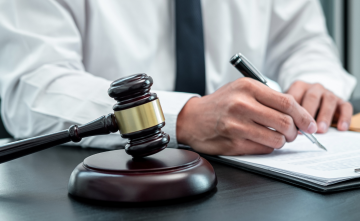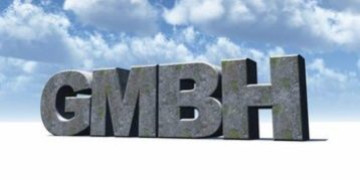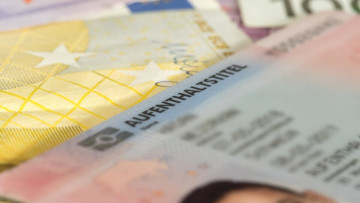Legal verification of assets, Due Diligence
Legal due diligence or Due Diligence is a critically important stage in the conduct of acquisition, merger or business reorganization transactions. It is a comprehensive process that includes a detailed analysis of the financial, legal and commercial aspects of a company's assets in order to identify possible risks and liabilities. A correct legal assessment allows you to avoid negative consequences in the future and ensure the reliability of the transaction. Legal assistance at the Due Diligence stage is indispensable for identifying potential problems and providing expert recommendations to minimize risks.
Legal stages of asset verification, Due Diligenc
The process of checking assets and conducting Due Diligence is an important component in the implementation of any transactions with assets or companies. It involves the following stages:
- Legal advice on asset verification, Due Diligence.
- Assessing the legal status of assets: The first step is to determine the legal status of the assets under review. This may include checking ownership, encumbrances, liens, litigation or claims related to the assets. An asset due diligence lawyer, Due Diligence analyzes legal documents, contracts and registration records to ensure that the assets belong to the seller and that there are no encumbrances placed on them.
- Contract and Agreement Analysis: Asset Due Diligence Lawyers also analyze all existing contracts, agreements and agreements related to assets. This may include commercial contracts, license agreements, employment contracts and other legal documents. The goal is to identify any potential risks or issues that could affect the future deal.
- Regulatory compliance review: Lawyers check whether the company's assets and operations comply with all applicable laws and regulations. This includes checking the availability of necessary licenses, permits and compliance with environmental, labor and other regulatory requirements.
- Assessing Litigation Risks: An important part of Due Diligence is checking for litigation or potential litigation risks associated with assets or a company. Lawyers study court registers and analyze the possible consequences for the buyer in case of pending or pending legal proceedings.
- Review of financial aspects: Although the financial review is usually a separate component of Due Diligence, lawyers may also be involved in the analysis of financial documentation, in particular to assess the fulfillment of contractual obligations, analyze possible penalties and identify hidden financial risks.
Proper and detailed conduct of Due Diligence allows you to avoid legal risks and identify hidden problems. Cooperation with a lawyer at each stage is a guarantee that the transaction will be concluded on favorable and safe terms for all participants.
Under what conditions can the asset status verification service be provided?
Legal assistance for checking assets, Due Diligence can be provided under the following conditions:
- Complete and transparent information: The seller must provide access to all necessary information and documents related to the assets or the company. The absence of important documents can complicate the verification process.
- Availability of a qualified lawyer: A qualified lawyer or a law firm with relevant experience and knowledge in the field of corporate law and asset transactions should be engaged to conduct a legal audit of assets.
- Mutual consent of the parties: Both the seller and the buyer must agree to conduct Due Diligence. It is important to have a mutual understanding of the purpose and procedures of the inspection.
- Availability of sufficient time: Due diligence can take considerable time, depending on the complexity of the assets and the transaction. It is important to have enough time to conduct a thorough inspection.
Compliance with all requirements and proper provision of necessary information are key to conducting high-quality Due Diligence.
Under what conditions can the Due Diligence service not be provided?

Lack of access to information: If the seller refuses to provide access to necessary documents or hides information, due diligence becomes impossible.

Opacity of the agreement: If the terms of the agreement are unclear or there are doubts about the legality of the agreement, a legal review may not be appropriate.

Conflict of interest: If the lawyer or law firm has a conflict of interest with respect to the parties to the transaction, the provision of the service may be unethical.
How to independently verify assets?
If you want to conduct the base yourself into a legal asset check, here are some steps that can help:
- Gather all necessary documents: Gather all available documents related to the assets or the company, including contracts, licenses, registration documents, court orders, etc. Find out the current list of documents for legal verification of assets, Due Diligence.
- Verify ownership: Examine documents proving ownership of assets. These can be certificates of ownership, sales contracts, etc.
- Analyze Court Registries: Check public court registries for assets or company-related lawsuits.
- Evaluate Financial Statements: Review financial statements and documents to evaluate the financial health of a company or assets.
- Check for licenses and permits: Make sure the company or assets have all the necessary licenses and permits to operate legally.
Conducting an asset due diligence yourself can be useful for obtaining preliminary information, but for a detailed and correct analysis, you should contact professional lawyers.
Frequently asked questions about Due Diligence
Question
How much does a legal consultation on legal verification of assets, Due Diligence cost?
Answer
The time required to conduct a legal audit of assets depends on the complexity of the agreement and the amount of required documents. On average, it can take from several weeks to several months.
Question
How to find a due diligence lawyer?
Answer
Although a basic due diligence can be done on your own, it is recommended to engage a qualified lawyer for a full and comprehensive due diligence.
Question
What documents are required for legal verification of assets, Due Diligence?
Answer
Insufficient due diligence can lead to the acquisition of assets with legal problems, litigation risks or encumbrances, which can have serious financial consequences for the buyer.
What does the cost of the asset verification service, Due Diligence, depend on?
The price of a Due Diligence service can depend on several factors, including the complexity and scope of the review, the number of companies or assets to be analyzed, and the urgency of the process. An important factor is the level of detail required for a particular transaction, as well as the degree of risks associated with the company or its assets. In addition, the price may be affected by the experience and qualifications of the lawyers conducting the review, and the specifics of the industry to which the assets or business belong.
ConclusionThe process of legal due diligence is necessary to protect the interests of all parties involved in the transaction. Properly conducted Due Diligence allows you to identify hidden legal, financial, and commercial risks that can significantly affect the value of the transaction. Involving experienced lawyers during the process is key to ensuring the legal purity of the transaction and preventing possible financial and legal losses in the future.








































